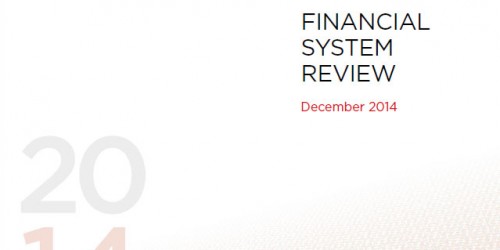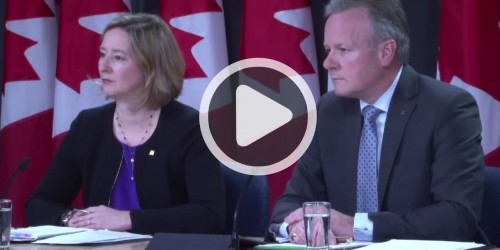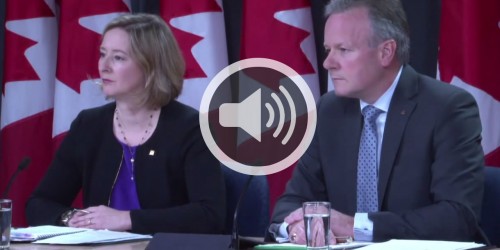Bank of Canada says household imbalances remain most important risk to financial stability
Risks to Canada’s financial system have not increased in the past six months, but high consumer debt loads and imbalances in the housing market remain a concern, the Bank of Canada said today in itsbiannual Financial System Review (FSR).
“We judge that the probability of an adverse shock has eased since our June FSR,” said Governor Stephen S. Poloz. “This mitigates our observation that some financial vulnerabilities appear to be edging higher, leaving our overall assessment of financial stability risk roughly the same as in June.”
While the FSR highlights risks, it is important to remember that global regulatory reform continues to enhance financial resilience in Canada and around the world. Further progress has been made in the past year.
The FSR discusses three important vulnerabilities in the financial system:
- Low interest rates and steady income growth have helped keep the household debt-to-income ratio broadly stable and near a historical high.
- The anticipated soft landing in the housing market has not yet materialized, in part because mortgage rates have declined in the context of falling global bond yields and also because of regional factors affecting housing demand and supply.
- Exceptional monetary stimulus continues to create incentives for increased risk taking in financial markets, both globally and in Canada.
The FSR framework also identifies important risks to financial stability that could expose these vulnerabilities should the risks materialize. The most important risk is the inability of stretched households to service their debt should they face a sharp decline in their incomes or a sharp rise in interest rates, which could trigger a correction in house prices. The probability of this happening is low, but if it did, the effect on the economy would be severe. The Bank maintains its assessment of this risk as elevated, but continues to expect a soft landing in the housing market as the global economy gathers strength and interest rates normalize.
Another risk identified in the FSR is that a sudden shift in market expectations about U.S. monetary policy leads to a spike in global term premiums and long-term interest rates that would be transmitted to Canada through financial markets. In addition, a significant stress event in the euro area could trigger a financial crisis that feeds back to the real economy. Finally, there could be a serious financial disruption in China that causes Chinese and global economic growth to slow significantly. These four key risks to the Canadian financial system are the same as those outlined in June, as is the level of severity assigned to them.
“We are also monitoring other emerging vulnerabilities and risks to the global economic outlook, including the continued weakness in oil and other commodity prices that could cause financial stress in some economies,” Governor Poloz said.
About the Framework
The Bank of Canada actively fosters a stable and efficient financial system as part of its commitment to promote the economic and financial welfare of Canada. Economic stability and financial stability are interrelated, and the Bank considers the risks to both in an integrated fashion.
The Bank’s risk-assessment framework is not intended to predict the most likely outcomes for the financial system, but to help Canadians better understand the forces at work in the economy. The framework focuses explicitly on the vulnerabilities in the Canadian financial system and how they are evolving. The vulnerabilities, and their interactions, determine the severity of the impact in the event that a particular risk is triggered. The main financial stability risks are then assessed according to their probability and potential impact.
The December 2014 FSR also contains two reports summarizing recent work by Bank of Canada staff on specific financial sector policies:
- Cyber Security: Protecting the Resilience of Canada’s Financial System
- Exchange-Traded Funds: Evolution of Benefits, Vulnerabilitiesand Risks


